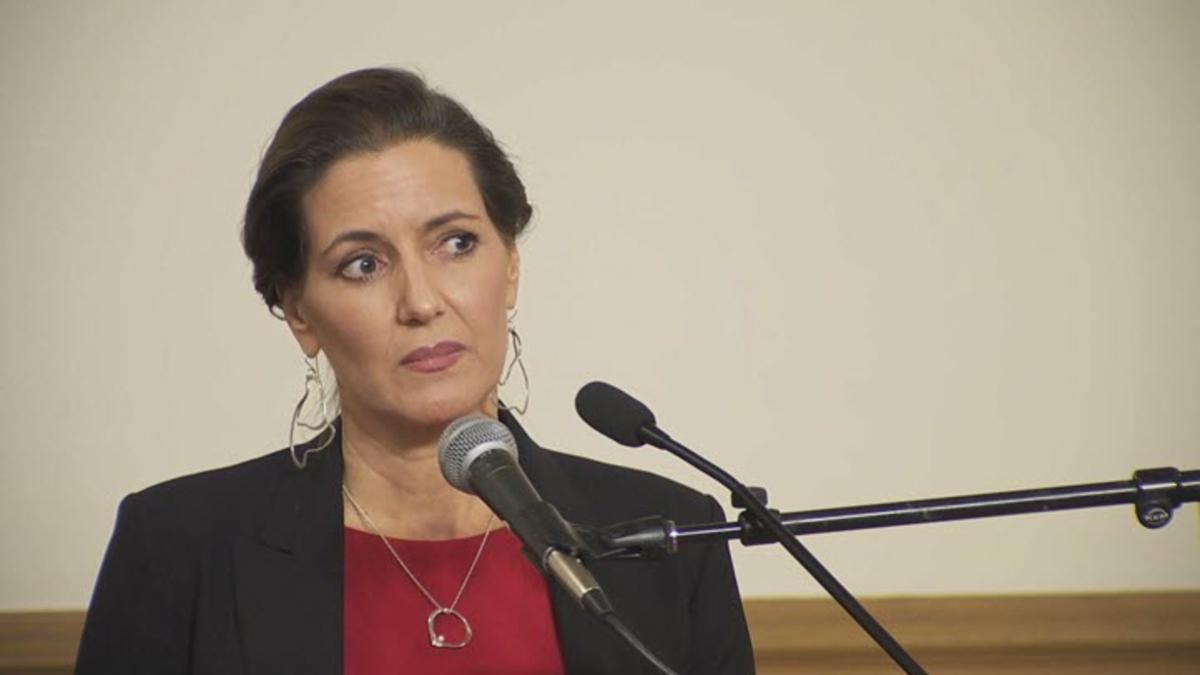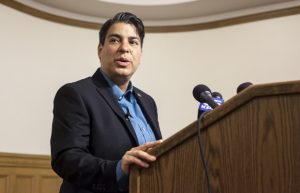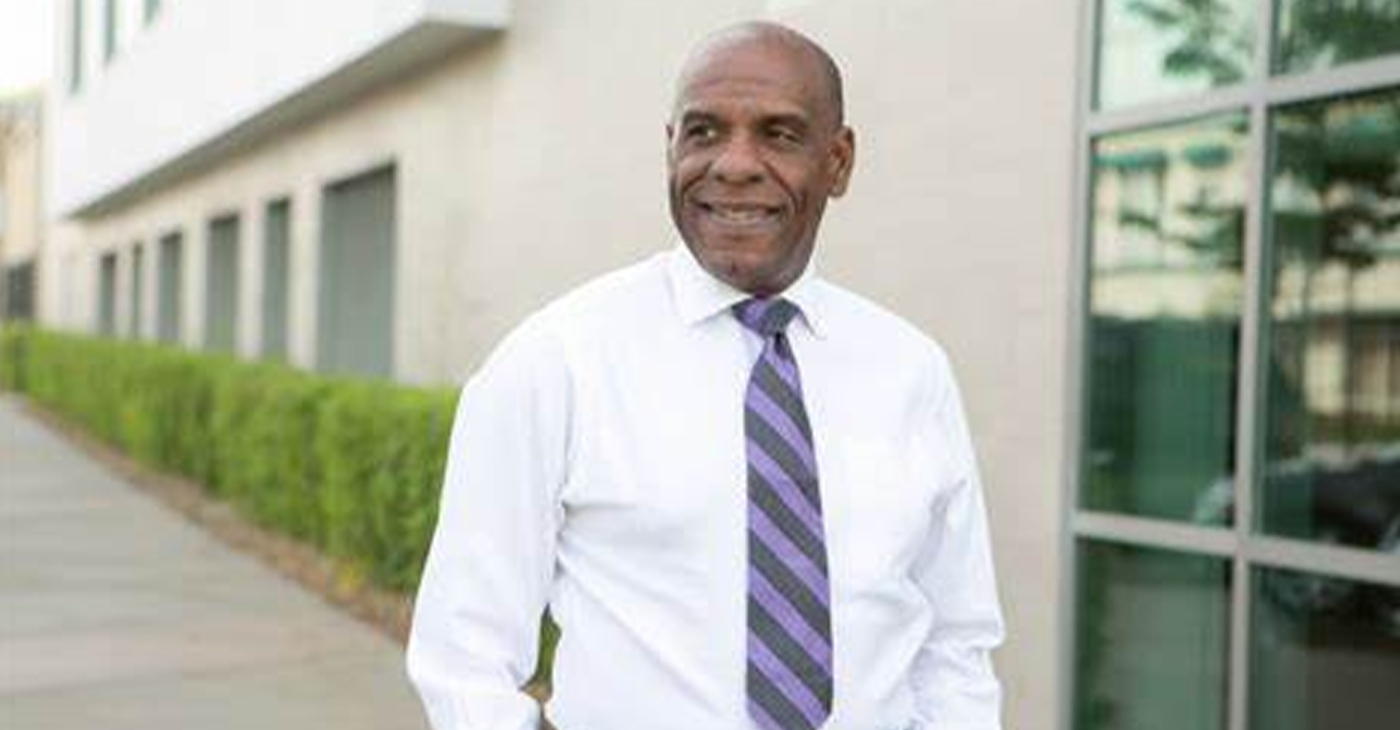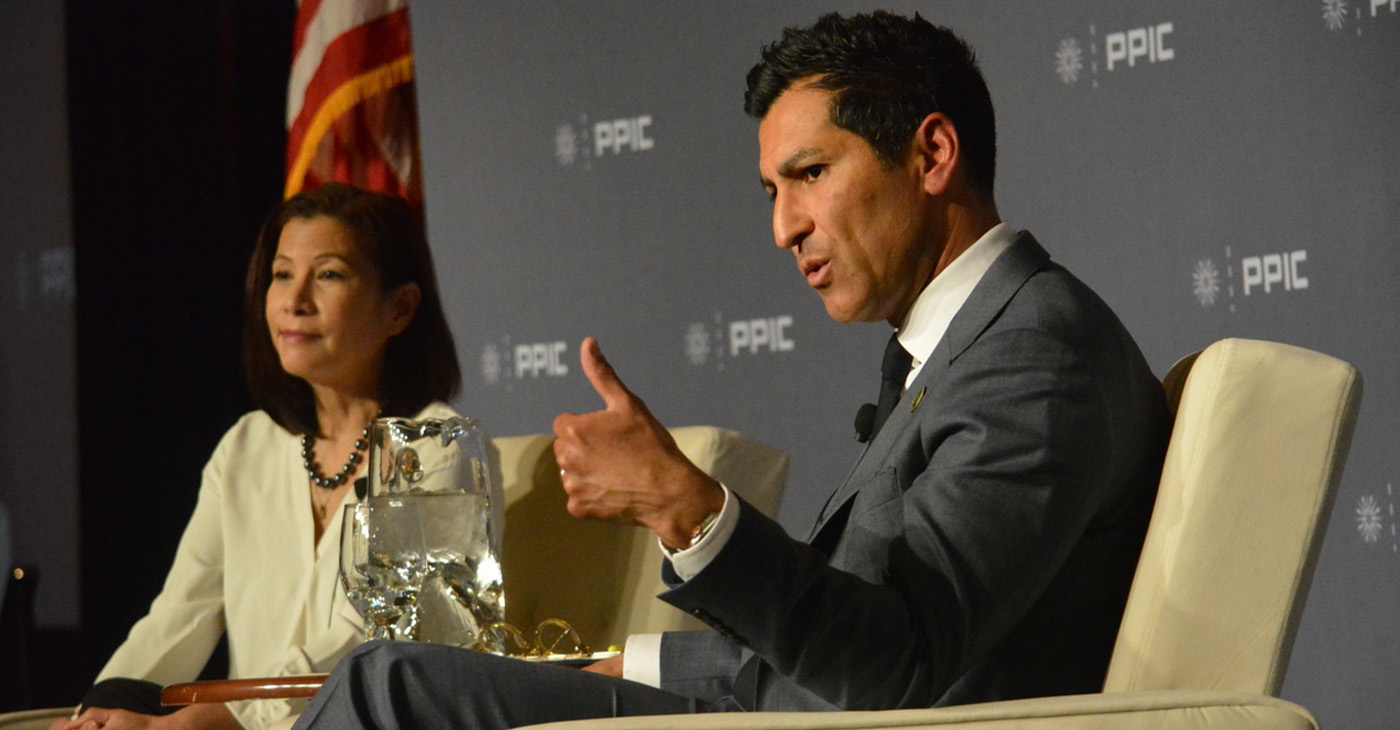Housing
Schaaf’s Proposals for Building Affordable Housing on Public Land Challenged

Community activists and others are raising concerns about whether the latest affordable housing proposals backed by Mayor Libby Schaaf’s administration would even make a dent in the wave of gentrification and displacement that is remaking the city right in front of their eyes.
Looking at the basic numbers, one of the most contentious issues in the city staff’s proposal is how many affordable units can be built on available public land.
The administration’s report claims that there are only 20 parcels available for housing development and that six of those need to be sold to market rate developers in order to subsidize affordable housing on the remaining 14 parcels. promising only 746 units in the price range that many Oaklanders could afford.
That number of potential units seems like a pittance to affordable housing advocates who point to the magnitude of the crisis—the unending surge of homelessness, and the huge numbers of seniors, young workers, teachers and city workers who are being forced out of the city.
The Schaaf administration proposal acknowledges the City owns over 1,000 parcels of land, but says only 20 of them are suitable for residential housing.
Of those 20 buildable parcels, totaling 24 acres, 14 would be utilized for affordable housing. Of the remaining six parcels, one would be sold for market-rate housing, totaling 492 units, and five be sold for market-rate commercial development, according to staff.
However, there are reports that show there is significantly more public land available, and many more units could be built on those properties, according to Margaretta Lin of the Dellums Institute for Social justice.
A former Deputy City Administrator, Lin led the work on the city’s Housing Equity Roadmap plan in 2014 that was adopted by the City Council in Fall 2015.
Lin said two reports show there are “50 publicly owned vacant or underutilized parcels that the City’s Housing Element identified as suitable for housing development, which could produce over 7,300 new housing units.”
The city owned 36 of these parcels which are capable of producing over 3,600 housing units per the City’s Housing Element, and other public agencies own the other 14, she said. However, the City sold one of those parcels, capable of producing 25 units, in January 2018 to what appears to be a market rate developer. (The reports are available at www.dellumsinstitute.org/community-justice-data/)
“We commissioned the two public land reports from UC Berkeley Public Policy and City Planning in 2015 because none of the City departments had a full list of City owned land. With the departure of Claudia Cappio who was briefed on this information, the City administration may be lacking complete information,” she said.
Councilmember Rebecca Kaplan said city staff makes two separate mistakes in estimating how many affordable units can be built.
“They are undercounting the number of suitable parcels that the city owns, and their estimate is way lower than the number of units that could be built on them,” said Kaplan.
Another major contentious issue is how to pay for construction of affordable housing. City staff wants to sell public land to market-rate developers to pay for affordable housing development.
The “staff strategy assumes” utilizing market-rate development on the six parcels in order to generate revenue to pay for “100 percent affordable housing for the other 14 sites,” said Mark Sawicki, director of Economic and Workforce Development Department, speaking on behalf of the Schaaf administration at last week’s Community and Economic Development (CED) Committee meeting.
The number of affordable units is constrained by the availability of funding, according to Sawicki’s report. Building 100 percent affordable units on the 20 parcels would increase the total number of possible units on the 20 parcels to 1,080, but it would take 10 to14 years to raise the $112 million needed to cover construction costs.
Staff’s proposal, on the other hand, would only cost the city $6 million (plus the sale of six parcels of land), which could be raised in three to four years, he said.
The question of funding, said Lin, depends on how the city defines the problem and the solutions.
“If the public policy problem is defined as a State of Emergency especially for people who are the working poor and/or newly homeless, then we would utilize every resource available, especially public lands,” she said.
But the traditional funding model does not work when “it costs $500,000 to $650,000 to build one housing unit, and the City needs to provide $150,000 to $165,000. Instead, if the City looked at new innovative housing development and financing models, such as new and attractive mobile homes that cost $35,000 a unit, that other communities are deploying, then the (costs)math would be completely different,” said Lin.
 Councilmember Kaplan, a longtime supporter of utilizing public property for affordable housing, says the staff “strategy” proposal does not consider other sources of funding: the city’s Measure KK, Alameda County’s A1 housing bond where Oakland is anticipated to receive over $200 million for affordable housing, impact fees, new State housing funds, and foundation grants.
Councilmember Kaplan, a longtime supporter of utilizing public property for affordable housing, says the staff “strategy” proposal does not consider other sources of funding: the city’s Measure KK, Alameda County’s A1 housing bond where Oakland is anticipated to receive over $200 million for affordable housing, impact fees, new State housing funds, and foundation grants.
“If they need to sell parcels, why not sell some of those that can’t be used for housing?” Kaplan asked.
Another issue that deeply concerns affordable housing advocates is whether the staff’s strategy would have teeth or would result in something the administration could modify or ignore as wished.
After meetings between staff and housing advocates on developing an affordable housing policy dragged on for almost two years, city staff announced a few months ago that they were no longer interested in passing a policy, instead proposing a “strategy” on how to utilize the 20 parcels of land.
“The mayor and the people who work for her have been trying to kill the policy all along,” said Councilmember Kaplan. “Even if we adopt a strategy, we need a policy,” she said.
The desperate need is for the City Council to adopt a binding public lands policy, said Lin.
According to Lin, as of December 2017, “there were 20,000 market-rate housing units under construction or in the pipeline, compared with less than 1,500 affordable units.”
“We’re in Oakland’s worst housing crisis in its entire history,” she said. “And affordable housing developers are having a hard time competing with market rate developers for access to land.
“An equity-based public land policy would solve this access to land problem. Market-rate housing developers don’t need public resources. They’re doing fine.”
Bay Area
MAYOR BREED ANNOUNCES $53 MILLION FEDERAL GRANT FOR SAN FRANCISCO’S HOMELESS PROGRAMS
San Francisco, CA – Mayor London N. Breed today announced that the U.S. Department of Housing and Urban Development (HUD) has awarded the city a $53.7 million grant to support efforts to renew and expand critical services and housing for people experiencing homelessness in San Francisco.

FOR IMMEDIATE RELEASE:
Wednesday, January 31, 2024
Contact: Mayor’s Office of Communications, mayorspressoffice@sfgov.org
***PRESS RELEASE***
MAYOR BREED ANNOUNCES $53 MILLION FEDERAL GRANT FOR SAN FRANCISCO’S HOMELESS PROGRAMS
HUD’s Continuum of Care grant will support the City’s range of critical services and programs, including permanent supportive housing, rapid re-housing, and improved access to housing for survivors of domestic violence
San Francisco, CA – Mayor London N. Breed today announced that the U.S. Department of Housing and Urban Development (HUD) has awarded the city a $53.7 million grant to support efforts to renew and expand critical services and housing for people experiencing homelessness in San Francisco.
HUD’s Continuum of Care (CoC) program is designed to support local programs with the goal of ending homelessness for individuals, families, and Transitional Age Youth.
This funding supports the city’s ongoing efforts that have helped more than 15,000 people exit homelessness since 2018 through City programs including direct housing placements and relocation assistance. During that time San Francisco has also increased housing slots by 50%. San Francisco has the most permanent supportive housing of any county in the Bay Area, and the second most slots per capita than any city in the country.
“In San Francisco, we have worked aggressively to increase housing, shelter, and services for people experiencing homelessness, and we are building on these efforts every day,” said Mayor London Breed. “Every day our encampment outreach workers are going out to bring people indoors and our City workers are connecting people to housing and shelter. This support from the federal government is critical and will allow us to serve people in need and address encampments in our neighborhoods.”
The funding towards supporting the renewal projects in San Francisco include financial support for a mix of permanent supportive housing, rapid re-housing, and transitional housing projects. In addition, the CoC award will support Coordinated Entry projects to centralize the City’s various efforts to address homelessness. This includes $2.1 million in funding for the Coordinated Entry system to improve access to housing for youth and survivors of domestic violence.
“This is a good day for San Francisco,” said Shireen McSpadden, executive director of the Department of Homelessness and Supportive Housing. “HUD’s Continuum of Care funding provides vital resources to a diversity of programs and projects that have helped people to stabilize in our community. This funding is a testament to our work and the work of our nonprofit partners.”
The 2024 Continuum of Care Renewal Awards Include:
- $42.2 million for 29 renewal PSH projects that serve chronically homeless, veterans, and youth
- $318,000 for one new PSH project, which will provide 98 affordable homes for low-income seniors in the Richmond District
- $445,00 for one Transitional Housing (TH) project serving youth
- $6.4 million dedicated to four Rapid Rehousing (RRH) projects that serve families, youth, and survivors of domestic violence
- $750,00 for two Homeless Management Information System (HMIS) projects
- $2.1 million for three Coordinated Entry projects that serve families, youth, chronically homeless, and survivors of domestic violence
In addition, the 2023 CoC Planning Grant, now increased to $1,500,000 from $1,250,000, was also approved. Planning grants are submitted non-competitively and may be used to carry out the duties of operating a CoC, such as system evaluation and planning, monitoring, project and system performance improvement, providing trainings, partner collaborations, and conducting the PIT Count.
“We are very appreciative of HUD’s support in fulfilling our funding request for these critically important projects for San Francisco that help so many people trying to exit homelessness,” said Del Seymour, co-chair of the Local Homeless Coordinating Board. “This funding will make a real difference to people seeking services and support in their journey out of homelessness.”
In comparison to last year’s competition, this represents a $770,000 increase in funding, due to a new PSH project that was funded, an increase in some unit type Fair Market Rents (FMRs) and the larger CoC Planning Grant. In a year where more projects had to compete nationally against other communities, this represents a significant increase.
Nationally, HUD awarded nearly $3.16 billion for over 7,000 local homeless housing and service programs including new projects and renewals across the United States.
Community
Financial Assistance Bill for Descendants of Enslaved Persons to Help Them Purchase, Own, or Maintain a Home
California Legislative Black Caucus (CLBC) vice chair Sen. Steven Bradford (D-Inglewood) introduced new legislation related to reparations to the Senate Committee on Housing on April 2 in Sacramento. Senate Bill (SB) 1007, “establishes the Homeowner’s Assistance for Descendants of Enslaved Persons Program to make financial aid or assistance available to descendants for the purposes of purchasing, owning, or maintaining a home,” the legislation states.

California Legislative Black Caucus (CLBC) vice chair Sen. Steven Bradford (D-Inglewood) introduced new legislation related to reparations to the Senate Committee on Housing on April 2 in Sacramento.
Senate Bill (SB) 1007, “establishes the Homeowner’s Assistance for Descendants of Enslaved Persons Program to make financial aid or assistance available to descendants for the purposes of purchasing, owning, or maintaining a home,” the legislation states.
The Senate Housing Committee advanced the bill with an 8-1 vote. It will be re-referred to the Appropriations Committee for consideration.
Sen. Kelly Seyarto (R-Murrieta) was the only member who voted against the bill.
“SB 1007 is about starting a long process of paying back a debt that is not only owed, but that was also promised, and is 160 years overdue, to African Americans,” Bradford told the committee chaired by Sen. Nancy Skinner (D-Berkeley). “It is the first step in closing the wealth and equity gap created by centuries of slavery and racial discrimination policies.”
The bill aligns with one of the 115 recommendations listed in a two-year study conducted by the California reparations task force, of which Bradford was one of nine members.
Bradford said the report reveals that, in the state of California, a typical Black-owned home is 22% less valuable than a White-owned home.
Various advocacy groups from around the state attended the hearing held at the State Capitol Annex Swing Space. The California Housing Partnership, Bay Area Regional Health and Inequities Initiative, Coalition for A Just and Equitable California, Disability Rights of California, the American Civil Liberties Union of California, and California Community Builders all voiced their support of the bill.
Community
The Year Ahead: Assembly Speaker Rivas Discusses Priorities, Problems
Assembly Speaker Robert Rivas shared his legislative priorities and vision for the future of California during a luncheon hosted by the Public Policy Institute of California (PPIC) in downtown Sacramento.

By Antonio Ray Harvey, California Black Media
Assembly Speaker Robert Rivas shared his legislative priorities and vision for the future of California during a luncheon hosted by the Public Policy Institute of California (PPIC) in downtown Sacramento.
Titled a “Conversation with Assembly Speaker Robert Rivas” for PPIC’s 2024 Speaker Series on California’s Future, the 44-year-old Democrat lawmaker from Hollister, who represents the 29th Assembly District, is the 71st speaker of the Assembly.
The discussion at the Sheraton Hotel took place about two weeks after Gov. Gavin Newsom presented his $291 Billion January budget proposal.
“These are going to be difficult times,” Rivas said of the task of balancing a budget that has been estimated separately by the Department of Finance and Legislative Analyst’s Office to have a deficit between $38 billion and $68 billion. “It’s going to underpin everything we get done this year. It’s going to impact everything.”
PPIC’s Speaker Series on California’s Future allows “leaders, lawmakers, and changemakers with diverse perspectives to participate critically, constructively, and collaboratively in public conversations,” according to PPIC.
PPIC president and Chief Executive Officer Tani Cantil-Sakauye was the moderator of the 60-minute discussion that about 200 guests attended.
Rivas said right after he was sworn in as the Assembly leader that among his top priorities are mental and medical wellness, public safety, affordable housing, homelessness, education, the state’s entry-level scientists’ wages, and climate change.
He added that his goal is to focus on both urban and rural areas across the state, including improving public services and infrastructure. He explained that wildfires, flooding, droughts, and agriculture productivity are additional concerns.
Rivas shared that legislators should have goals of “addressing critical issues” that lead to “progress, affordability, and improving day-to-day” quality of life for all residents in California.
“These issues are consistent across the state. I prioritize no region over the other,” Rivas told Cantil-Sakauye, the former chief justice of the California Supreme Court.
During the question-and-answer portion of the conversation, Michael L. Younger, the Vice President of Workforce, Strategy, and Innovation at Calbright College asked Rivas about how the state can help individuals with workforce training and achieve labor success without relying on traditional colleges and university.
“(I am) speaking to those who may not see themselves on the college track but also have value to society,” Younger asked Rivas.
In his response, Rivas said the labor force needs individuals with work training skills, especially with the rise and usage of artificial intelligence.
“The need to have that transition can’t come soon enough but at the same time we have a responsibility to train displaced workers,” Rivas said.
Carmen-Nicole Cox, director of Government Affairs for American Civil Liberties Union – California Action, asked the Speaker would he accept the “community’s invitation” to take a public health approach to addressing public safety rather than one that criminalizes, demoralizes and focuses on incarceration.
Rivas responded to Cox’s question by explaining that an impartial evaluation of public safety should be made initially before providing a resolution.
“Our approach to addressing public safety is to, first, listen, to be fair throughout our process and to find solutions. Does that include addressing public health? Absolutely,” he said.
-

 Community2 weeks ago
Community2 weeks agoFinancial Assistance Bill for Descendants of Enslaved Persons to Help Them Purchase, Own, or Maintain a Home
-

 Activism3 weeks ago
Activism3 weeks agoOakland Post: Week of April 3 – 6, 2024
-

 Business2 weeks ago
Business2 weeks agoV.P. Kamala Harris: Americans With Criminal Records Will Soon Be Eligible for SBA Loans
-

 Community2 weeks ago
Community2 weeks agoAG Bonta Says Oakland School Leaders Should Comply with State Laws to Avoid ‘Disparate Harm’ When Closing or Merging Schools
-

 Activism2 weeks ago
Activism2 weeks agoOakland Post: Week of April 10 – 16, 2024
-

 Community1 week ago
Community1 week agoOakland WNBA Player to be Inducted Into Hall of Fame
-

 Community1 week ago
Community1 week agoRichmond Nonprofit Helps Ex-Felons Get Back on Their Feet
-

 Community2 weeks ago
Community2 weeks agoThe Year Ahead: Assembly Speaker Rivas Discusses Priorities, Problems

























































